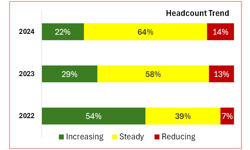The articles reported an allegation - sent in an anonymous email to the newspapers - that the complainant was an "ex-heroin user". The complainant (who had been given the lead role in a local operatic production) said that this was incorrect: he had never used the drug. He had made his absolute denial clear to the newspapers which contacted him before publication, and argued that they ought not to have published the story based on the claims of a single anonymous source.
The newspapers acknowledged that deciding to run the article was "a difficult call" but argued that the anonymous email had contained a serious allegation which had been investigated by contacting the complainant and the operatic society for their comments. The published article had provided the complainant with an opportunity to deny the allegation.
In its ruling, the Commission made clear that there had been a "clear editorial lapse" here. Although the complainant's denial of the allegation had been reported in the article, there was no suggestion that the newspapers had made other efforts to establish whether the claim had any basis in fact. The publication of the complainant's denial did not, the Commission ruled, absolve the newspapers of their own responsibility for care over the accuracy of the serious claim against him.
Stephen Abell (pictured), Director of the PCC, commented: "Clause 1 of the Editors' Code of Practice makes clear that the press 'must take care not to publish inaccurate, misleading or distorted information'. This is particularly important in cases where allegations are made, which have the potential to damage an individual's reputation. This ruling serves as an important reminder to editors of the proper checks that the PCC expects to be made prior to publication".
To read the adjudication, which has been published by the three newspapers today, please click here for Canterbury Times, here for Herne Bay Times and here for Whitstable Times.










